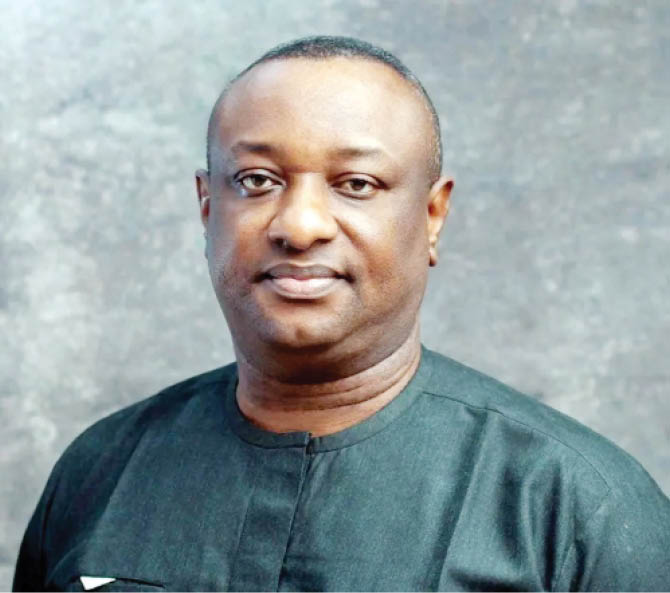Concerns over delay in aviation agencies’ boards’ composition
There is no end in sight to the delay over the constitution of governing boards of aviation agencies after the composition of that of the Nigerian College of Aviation Technology (NCAT), Daily Trust can report. President Bola Ahmed Tinubu had in August announced a board for NCAT, Zaria, raising hope for the appointment of boards […]

festus keyamo
There is no end in sight to the delay over the constitution of governing boards of aviation agencies after the composition of that of the Nigerian College of Aviation Technology (NCAT), Daily Trust can report.
President Bola Ahmed Tinubu had in August announced a board for NCAT, Zaria, raising hope for the appointment of boards of other agencies after over 10 decades of running the agencies without statutory boards contrary to the provision of the acts establishing them.
Tinubu had named Anthony Manzo as Chairman of NCAT Governing Board with other members including Ngozi Okuoma, Durungunwa Abdulmalik, Biodun Taiwo and Florence Toyin Olorunfemi.
A few days later, information flew around about the purported appointment of the chairman of the board of the Nigeria Civil Aviation Authority (NCAA) but there was no official confirmation of the appointment of any board.
Other aviation agencies whose boards are yet to be constituted are the Federal Airports Authority of Nigeria (FAAN), Nigerian Airspace Management Agency (NAMA), Nigerian Meteorological Agency (NIMET) and the Nigerian Safety Investigation Bureau (NSIB).
All their acts stipulate the appointment of governing boards that would work with the management team in the running of the agencies.
Section 7 of the NSIB Act states: “There is established a Governing Board for “the Bureau” (in this Act referred to as the Board) which shall consist of — (a) a chairman, who shall be a person with 20 years cognate technical knowledge, qualification and practical experience in accident reconstruction, safety engineering, transportation safety, or transportation regulation…”
The act also stipulates other experts to be part of the boards, while similar provision is contained in the amended acts of other agencies.
Our correspondent reports that the last time the agencies had governing boards was during the tenure of Stella Oduah as aviation minister.
Since then, the industry has produced four ministers including Dr Samuel Ortom, Chief Osita Chidoka, Senator Hadi Sirika and the current minister, Festus Keyamo.
Sirika served for eight years and never inaugurated the boards of the agencies throughout his tenure despite outcries from stakeholders who challenged the running of the agencies without the statutory boards.
The stakeholders argued that the running of the agencies without their boards is against the principle of corporate governance.
They, however, urged the new minister not to toe the path of his predecessors by not inaugurating the boards.
A spokesman of the minister had told our correspondent that Keyamo is disposed to inaugurating the boards once appointed by the president who has the power to make such appointments.
A leader of one of the aviation unions who spoke with our correspondent in confidence said, “We are sure of that of NCAT but we are pushing as unions for the others.”
He, however, disclosed that some stakeholders in the system were not disposed to having boards in the agencies, “since they claim that the board will come and ‘chop’ and bearing this in mind, they prefer to be ‘chopping’ alone, or as things are at the moment.
“As far as the establishment acts of the various agencies provide, we shall only nudge the members to act well on their parts and be supported to ensure success in their various tasks as the act stipulates their roles in clear terms.
“The unions hope to serve as deserving partners and check against abuse.”
Speaking with our correspondent, a Vice-President of Aviation Roundtable, Capt. Alex Nwuba said, “The relevance of these boards is corporate governance. The Nigeria Civil Aviation Authority (NCAA) is supposed to be an independent agency. Therefore, the director-general needs an oversight board to ensure that it is complying with the expectations.
“So what would happen is management makes a presentation to the boards of the agencies on things they want to achieve and the process by which they want to achieve them and the boards would advise on the appropriateness and the direction to take with that.
“When you have a minister talking to a director-general, it is not corporate governance. Its two people engaging in dialogue. There is no check and balance in that system; none at all. When you ask the minister, he would say I refer to the president. What can the president do, what does he know about aviation?
“So, there is no check on him (minister). The DG CAA would say I’m independent, I don’t listen to him. I do my stuff but we know that that’s not necessarily the case. But you can see it.”
